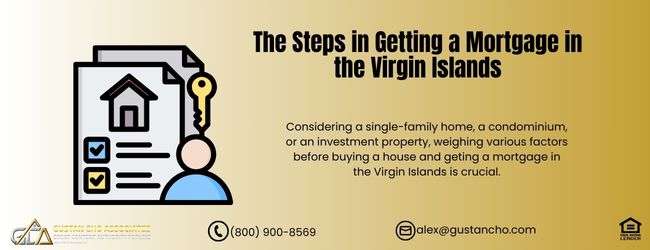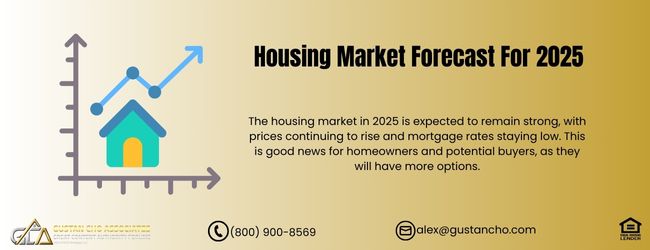Does Feds Rate Hike Affect Housing Market and Mortgage Rates

In this guide we will cover Feds rate hike. In this breaking news article about the recent Federal Reserve meeting, we will cover and discuss: Does the Fed’s Rate Hike Affect the Housing Market and Mortgage Rates? After the most recent Federal Reserve meeting, what should we expect about them raising interest rates by 75 basis points? Mortgage rates were just under 3.0% on a 30-year fixed-rate mortgage just a little over a year ago.
How Does Feds Rate Hike Affect Housing Market and Home Prices
Today, 30-year fixed-rate mortgage rates are north of 6.5%, costing discount points. Despite the increasing mortgage rates, the housing market remained strong, with prices still increasing all year. However, does the Fed’s rate hike affect the housing market this time around? Mortgage rates are still skyrocketing, and what does the Fed’s rate hike affect the housing market in the months to come? In the following paragraphs, we will cover the topic of whether the Fed’s rate hike affects housing prices and how much higher mortgage rates can go.
Does the Fed’s Rate Hike Affect the Housing Market This Time?
As you more than likely know, the Federal Reserve has increased interest rates yet again. On Wednesday, September 21, 2022, the Federal Reserve announced they will raise interest rates an additional three-quarters of a percent (0.75%). The move is a bold attempt to cool down the hottest inflation numbers the United States has seen in four decades. In this blog, we will give some market updates and advice on purchasing a home in these crazy times.
Will Feds Rate Hike Slow Inflation?
Inflation has hit every sector of the United States economy. Unfortunately, inflation has hit many countries significantly harder than the United States. After Wednesday’s Federal Reserve meeting, the Fed decided to lift interest rates for the fifth time since March of this year. This 75 basis point increase in interest rates is a dramatic step in the attempt to slow inflation.
Feds Rate Hike Attacks Inflation With Another Steep Fed Rate Hike
Inflation nearly started to slow in July, but in August, prices rose 8.3% year over year. This data is from the consumer price index report from last week. Unfortunately, high inflation makes it difficult for Americans to afford basic essentials like housing, fuel, and groceries. Since housing is our main point of focus in this article, the Federal Reserve decides to raise interest rates, ultimately attempting to stabilize rapidly rising home prices. Higher interest rates make it less enticing to borrow money.
Need a Mortgage Loan? We Make the Process Simple and Affordable!
Reach out today to see how we can help you qualify for the best loan for your needs.
Does Inflation Lead To Higher Home Prices?
During 2020 and 2021, we saw home values rise to historic levels. Many experts believe the historically low interest rates during those years helped drive up the cost of housing. Americans had access to incredibly low mortgage rates, which helped them purchase more expensive homes. Now we are dealing with a catch-22: as home values are still extremely high and interest rates are higher than they have been in 14 years, many Americans are now unable to afford a mortgage. The Federal Reserve is doing all it can to reduce the consumer demand for goods and services. If we can dampen down demand, the ultimate goal is to stop prices from growing so quickly.
Does the Fed Rate Hike Affect the Housing Market for the Past Five Increases?
As a consumer, have you seen prices drop with the five interest rate hikes since May 2022? I must say, I personally don’t feel that these rate hikes have helped curb inflation to this point. Based on the 12-month changes from the consumer price index figures released last month, food costs have increased 11.4%, and energy costs are up 23.8% (year over year). Food and energy costs are basic functions of everyday living. As an American citizen, it is tough to see how much my utility bills have increased.
Skyrocketing Cost of Goods and Services
Every time you go to the grocery store, your bill seems to increase. While the cost of gasoline has decreased from historic highs, the average cost for consumers is still through the roof when filling their tanks. Americans seem to be getting hit from every direction. It may get scarier, considering many experts think we need a higher unemployment figure and multiple more rate hikes are needed in order to put an end to the inflation figures we are currently dealing with.
How Does Inflation Affect Home Prices
Even after these Fed rate hikes, do you think prices will drop? As an everyday consumer of goods, I am not hopeful. I feel like these inflation figures have become part of our lives, and Americans are now used to paying more for items such as clothing, groceries, gasoline, and utilities. Many corporations have reported record-breaking profits while the American people continue to suffer.
Does Inflation Lead To Higher Home Prices?
Many sectors of our economy are running on minimal employees working crazy hours to keep their businesses afloat. The hard-working employees are sacrificing their work-life balance to set these record profits. Despite the recent avoidance of the railroad strike, the situation remains unresolved. Hopefully, the railroad employees are able to negotiate a fair contract so they can enjoy their lives and families. There is no single simple solution; otherwise, I believe we would have already begun to recover from this record inflation by now.
Is It Good To Own Real Estate During Inflation?
Rate hikes specifically impact the housing market. It is no secret that the rising interest rates have slowed the housing market. Each time the Federal Reserve increases interest rates, we have seen the demand in the housing market slow down. Both the number of homes sold and the appreciation of home values are slowing down in the housing market.
Housing Market Forecast During Inflation
Many experts predict home sales will be down nearly 20% by the end of the year and expect slower home sales throughout the first half of 2023. Higher interest rates come with higher monthly payments. Since many home buyers are payment-conscious, sellers may be forced into lowering the price of their homes to make the sale.
Historic Rapid Inflation Causing Fears Among Americans
We are in unprecedented times, so it is hard for experts to analyze the current market. The last time we saw rapid inflation like this was during the 1980s when mortgage rates were over 17%. And even in those times, Americans still purchased homes. A decade later, during the 1990s, interest rates were in the high single digits (around 9%), and Americans were still purchasing homes.
Is It Safe To Buy a Home During a Period of High Inflation?
It is safe to say that even with high home prices and high-interest rates, some Americans are still going to be in the housing market for several reasons, including growth in family size, a job change, relocation due to family, or other personal reasons. And while the Federal Reserve does not set mortgage interest rates directly, when they raise the short-term rates, mortgage interest rates follow.
Does Feds Rate Hike Affect Housing Market and Refinance Market
Refinance opportunities are scarce, and the demand for home purchases has decreased. There is significantly more housing inventory on the market today, which is rapidly turning the real estate market from a sellers’ market to a buyers’ market.
Does Fed’s Rate Hike Affect Housing Market For First-Time Homebuyers
What do GCA Forums Mortgage Group recommend for buyers in today’s housing market? We recommend collaborating with a highly skilled mortgage team that can efficiently complete your file on time. Expert loan officers at GCA Forums Mortgage Group are available to assist with your mortgage needs. We have highly competitive interest rates, which will increase your buying power.
Start Your Process Towards Buying A Home
Apply Now And Get recommendations From Loan Experts
Best Mortgage Loan Program During Times of High Inflation and High Rates
We have seen the adjustable-rate mortgage programs come back into play. But we don’t necessarily suggest using an adjustable-rate mortgage. While the initial payment may sound enticing, it can be a trap. An adjustable-rate mortgage typically saves you about half a percent of interest for the first five years, but then you are at the risk of the market.
Adjustable-Rate Versus Fixed-Rate Mortgages During Times of Rising Rates
One more thing to consider about adjustable-rate mortgages is how many times the rate may adjust. The old-school adjustable-rate mortgage that helped create the housing bubble in 2008 had adjustments every year. New adjustable-rate mortgage programs now adjust every six months, which can put you in a bad situation down the road. So, if a fixed-rate mortgage payment is in your wheelhouse, we always suggest the less risky route. Of course, no two situations are the same, and our team of experts is here to help you in any way possible.
Should You Consider Cash-Out Refinancing As Interest Rates Increase?
Keep a cash-out refinance in mind. If you have not refinanced your home in the past few years, you more than likely have a decent chunk of equity in your home. If you find you have built up consumer debt over the past few years, you may be able to utilize the equity in your home to lower your overall monthly payments.
Should Homeowners Cash Out Refinance To Pay High-Interest Debts?
In times of high inflation, saving money is very important. Credit card debt can snowball out of control very quickly. If you choose a cash-out refinance, your rate on your mortgage may increase, but your total monthly bills will decrease. Turning your current consumer debt into tax-deductible mortgage interest can save you a lot of money. Our loan officers are experts in cash-out refinance options and can offer you a free quote. To see if a cash-out refinance makes sense in your situation, please call Gustan Cho at (800) 900-8569 or email your information to gcho@gustancho.com.
Does the Feds Rate Hike Affect the Housing Market and New Home Buyers?
Is it still a good time to purchase a house? Everybody’s situation is slightly different, but the present moment can still be a wonderful time to purchase a home. While we haven’t seen home values significantly drop, we have not seen the rapid appreciation of years past. This implies that you might have the opportunity to invest at an advantageous moment. Many experts agree that home prices will continue to increase but at a much lower rate. Most experts feel we are not going to see a real estate crash as we did in 2008. That being said, if you can comfortably afford the payment today, locking into a 30-year fixed rate is always a beneficial choice. If you are a renter, you know that every year your landlord can raise your housing costs. Only an increase in taxes and insurance can cause your 30-year mortgage payments to rise.
Feds Rate Hike: Will Rents Increase During Times of Inflation?
If you are renting a home and property taxes and insurance increase, those costs will be passed down to you. Many consumers are buying a home in today’s market with the assumption they will refinance their house in the future when interest rates dip. While this is a beneficial strategy, we stress to our clients that they need to be prepared to pay their current interest rate for the foreseeable future. There is no crystal ball, and nobody knows if and when rates will decrease again.
Are We Headed toward a Buyer’s Market Due to High Rates?
GCA Forums News has firsthand accounts of buyers getting a fantastic deal on a home. Recently, we had clients who were able to purchase a home at a bargain price because the housing market is shifting back to a buyers’ market. Such an outcome could potentially enhance your chances of receiving seller-paid closing costs, thereby allowing you to retain more of your money.
Feds Rate Hike: How Does Inflation Affect Mortgage Rates?
Buying a home is a long-term decision, and you want to make sure you purchase one that will best fit your needs. Our experts can help you with pre-approval and lock in your interest rate while you shop for a home. Please call us for more information on locking your interest rates during the home shopping process, as not every program allows this unique opportunity.
Getting Pre-Approved During Times of Rising Mortgage Rates
Gustan Cho Associates are experts in mortgage lending and are constantly monitoring the real estate market. It is our job to keep our clients up to date on the ever-changing guidelines, mortgage programs, and market conditions. We know we are in for some tough financial times. The United States government under the Biden administration has signaled to American consumers that tough times are on the horizon. Hopefully, we can bounce back sooner than later, but we encourage our readers to prepare for the worst. Locking yourself into a 30-year mortgage can be a great opportunity to stabilize your monthly finances. Whether you are in the market to purchase or refinance a home, please reach out to the experts at Gustan Cho Associates today. We look forward to assisting you.
Federal Reserve rate hikes impact the mortgage and housing market, but the correlation is complicated. Here’s a summary of the impacts and an evaluation of the claim that housing prices could drop by 10% to 30%:
Impacts of Feds Rate Hike on Mortgage Rates
Feds Rate Hike: Indirect Influence
The Fed’s influence is indirect, as it sets the federal funds rate and determines how banks will be charged for borrowing in the short term. On their end, the banks have a direct relation to their lending rates, which will influence the borrowing rate. Since the 10-year treasury yield influences fixed-rate mortgages such as the 30-year mortgage, the treasury yields indirectly bring them to an unflappable position. Due to increasing expectations of inflation and economic growth among market participants, the triad yield rises, forcing mortgage rates upwards.
Recent Trends Feds Rate Hike
Over the past few years, fixed mortgage rates have increased. For instance, 30-year fixed mortgage rates increased from 3.4% in January 2022 to an October reading of 7.12%. The rate touched the 8% mark in 2023 and settled back to 6.82% in May 2025. Even the Fed’s open market policy postulated in late 2024, with pronounced mortgage rates of 6.95 in May 2025, reiterated that not all rates have some forward alignment with Fed cuts.
Feds Rate Hike: Mechanism
Streamlining Fed funds rates and tightening policies will fuel them, ultimately increasing interest in borrowing. While adjustable-rate mortgages (ARMs) are more closely aligned with the Federal Reserve’s rate and the Secured Overnight Financing Rate (SOFR), fixed-rate mortgages are influenced by the Treasury yields.
Inflation Impacting Your Home Search? We Can Help You Lock in a Great Mortgage Rate!
Reach out now to learn about the best mortgage solutions available in today’s market.
Impact on the Housing Market
Feds Rate Hike: Reduced Affordability
Higher mortgage rates increase the monthly payment, reducing the buyer’s affordability. Based on estimates from March 2025, a home priced at $403,700 will incur a payment of $2,134 if the rate is 6.95% with a 20% down payment. This expense translates to 26% of the median family income ($97,800), significantly squeezing affordability, especially for first-time buyers.
Feds Rate Hike: Lower Demand
Demand is also cooling due to increased rates, as borrowing is expensive. Between Q2 2022 and Q4 2023, home sales decreased by 32%. Additionally, we project home sales in 2024 to reach a record low since 1995, largely due to rates exceeding 6%.
Feds Rate Hike: Lock-In Effect
Homeowners are reluctant to sell their homes due to the current economic climate and their low-rate mortgages. For example, 60% of mortgages were below 4% during 2020–2021, restricting their sale due to the higher rates of new homes sold. This phenomenon reduces available inventory while keeping supply constrained even with low demand.
What will Feds Rate Hike do to Home Prices
While higher interest rates are known to soften demand, prices remain stubbornly high. In March 2025, the median existing home price was $403,700, a 2.7% increase from the previous year. This figure was, however, down from its peak of $426,900 in June 2024. The price did experience a slight decline of 1% between August and December 2024 but recovered in January 2025.
Feds Rate Hike: Will Housing Prices Drop 10% to 30%?
The assertion that housing prices are bound to drop by 10% to 30% is purely speculative and lacks credible evidence.
Here’s why:
- Historical Context: The federally imposed rate hikes from 2022 to 2023 were not the only factors influencing economic trends.
- Home values only dropped 0.2% year-over-year in February 2023, which marked the end of a long-term economic cycle.
- Supply Constraints: Prices remain high as a result of the lock-in effect and perpetual underbuilding.
- The supply of housing is low, and vacancy rates are also low.
- Expert Forecasts: Most experts predict stagnation or a slight decrease rather than a drastic drop. JP Morgan expects a 6.7% mortgage interest rate with subdued price growth by 2025.
- The National Association of Home Builders expects a rate of approximately 6.62% in 2025, with prices around current levels.
- Counteracting Factors: The pandemic is a wonderful example of lower rates leading to increased demand.
- Prices surged by 50% during the pandemic due to rates below 3%. Current rates of 6.5%-7% are high but not historically high (1990s rates were 6-7%, and 1980s rates were double digits).
- If inventory increased (which went up by 33.6% yoy in September 2024), there would be some easing of prices, but not enough for the 10-30% drop.
- Regional Variations: Like San Francisco, certain markets saw the most drastic effects of rate increases, with around a 10% price drop.
- However, this isn’t true for all markets.
- Due to the limited supply, most markets are still seller-driven.
- Economic Strength: Robust job growth (177,000 new jobs in April 2025) and rising nominal wages support demand and prevent price contraction.
- Opposed tariffs from the Trump administration may increase inflation, keeping rates high and further dampening demand, but not enough to result in a 10- to 30-percent crash.
Critical Perspective on Feds Rate Hike
The average 10-to-30% price drop estimate seems overly pessimistic. In conjunction with the demand lock-in effect, the supply shortage protects prices from significant declines, even though affordability and demand are hit due to higher rates. Claims that a “structural reset” occurs with rates over 7% are prevalent on GCA Forums. Still, such claims are too anecdotal to be conclusive. An abrupt correction like this would likely need more mass forced sales due to a complete economic collapse, high unemployment, or a combination of both, none of which is present with current job growth and homeowner equity.
Mortgage rates increase due to the Fed’s rate hikes’ impact on Treasury yields. Additionally, demand for housing decreases along with reduced affordability, while sharply lower supply means prices can’t significantly drop. A major economic shock is needed for prices to decline by 10–30%, as current data and forecasts indicate stable or slowly declining prices up until 2025. If you are buying or selling, focus on being financially prepared rather than trying to time the market (e.g., having no debt and making a substantial down payment).
Ready to Buy a Home? Let’s Secure the Financing You Need!
Contact us today to find out how we can help you get pre-approved and make your homeownership dream a reality.






Responses